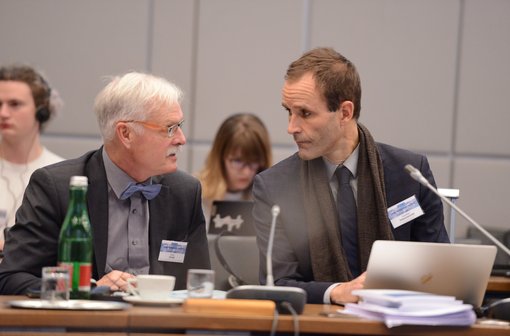To what extent do the 15 current member states of the United Nations Security Council (UNSC) perceive climate change as a threat to their own security and security worldwide? To what extent do they integrate the climate change-security nexus – the multiple security threats posed by climate change – into their domestic and foreign policies and their respective positions in the UN? In the new IFSH Research Report, Dr. Judith Nora Hardt and Alina Viehoff present important research results on these questions. The analysis, which was elaborated with the support of a large international and interdisciplinary scientific network during the period December 2019 to April 2020, employs a broad understanding of security and focuses on traditional security actors as well as state actors.
Findings of an international and interdisciplinary scientific network
This Research Report is the first study to systematically address UNSC member state acknowledgement of the climate-security nexus. It places particular emphasis on the connection between national and international security by focusing on the national policies of the 15 member states of the UNSC— the only international body with a mandate to maintain international peace and security. The report contains detailed research findings that served as a basis for the previously-published IFSH Policy Brief #5, "A Climate for Change in the UNSC? Member States' Approaches to the Climate-Security Nexus."
Interrelationsship between climate change and security
In both the Policy Brief and the Research Report, recognition by the UNSC of the interrelationship between climate change and security and its various resulting impacts is considered essential. Both publications stress the need for institutional change in the Security Council that is multilaterally supported and informed by the inclusion of scientific expertise. In addition, authors Hardt and Viehoff recommend that security policy, which usually addresses threats in a narrower and more traditional sense, be expanded to include socio-environmental aspects such as extreme weather events, and existential threats to island states and future generations.
The Research Report was produced within the framework of the project "The role of climate change in security conceptions and perceptions of the UNSC member states" (CLISEC UNSC), which is funded by the German Federal Foreign Office. The project was a cooperation between the Institute for Peace Research and Security Policy at the University of Hamburg (IFSH) and the Research Group Climate Change and Security (CLISEC) at the University of Hamburg, who are collaborating in the climate cluster of excellence CLICCS.
The Research Report can be found here.





